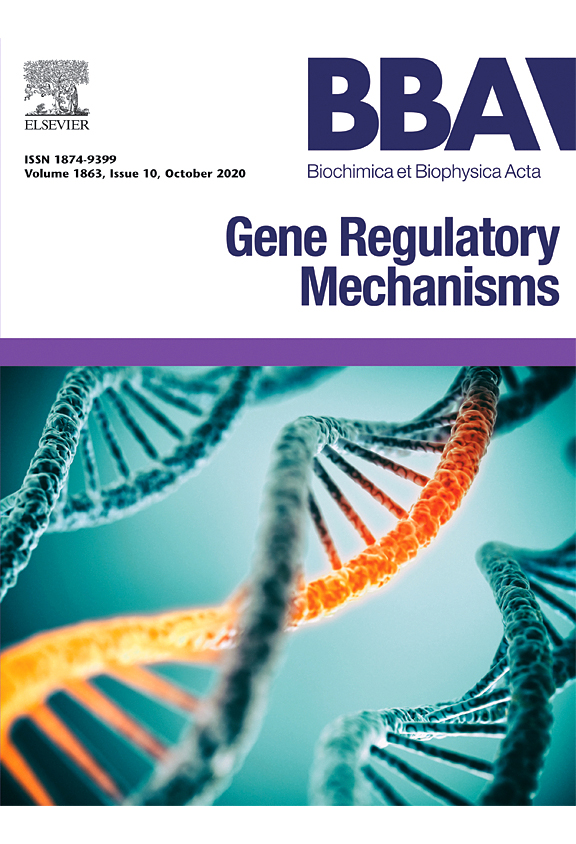Biochim Biophys Acta Gene Regul Mech. 2020 Oct 2;1863(12):194642. doi: 10.1016/j.bbagrm.2020.194642. Online ahead of print.
Tareg Belali 1, Chigeru Wodi 1, Bethany Clark 1, Man-Kim Cheung 1, Tim J Craig 1, Gabrielle Wheway 1, Nicole Wagner 2, Kay-Dietrich Wagner 2, Stefan Roberts 3, Sean Porazinski 4, Michael Ladomery 5
Affiliations
1 Centre for Research in Bioscience, Faculty of Health and Applied Sciences, University of the West of England, Coldharbour Lane, Frenchay, Bristol BS16 1QY, United Kingdom.
2 Université Côte d’Azur, CNRS, INSERM, iBV, 06107 Nice, France.
3 Biomedical Sciences Building, University of Bristol, University Walk, Clifton, Bristol BS8 1TD, United Kingdom.
4 Centre for Research in Bioscience, Faculty of Health and Applied Sciences, University of the West of England, Coldharbour Lane, Frenchay, Bristol BS16 1QY, United Kingdom. Electronic address: s.porazinski@garvan.org.au.
5 Centre for Research in Bioscience, Faculty of Health and Applied Sciences, University of the West of England, Coldharbour Lane, Frenchay, Bristol BS16 1QY, United Kingdom. Electronic address: Michael.Ladomery@uwe.ac.uk.
Abstract
Dysregulated alternative splicing plays a prominent role in all hallmarks of cancer. The splice factor kinase SRPK1 drives the activity of oncogenic splice factors such as SRSF1. SRSF1 in turn promotes the expression of splice isoforms that favour tumour growth, including proangiogenic VEGF. Knockdown (with siRNA) or chemical inhibition (using SPHINX) of SRPK1 in K562 leukemia and PC3 prostate cancer cell lines reduced cell proliferation, invasion and migration. In glomerular podocytes, the Wilms tumour suppressor zinc-finger transcription factor WT1 represses SRPK1 transcription. Here we show that in cancer cells WT1 activates SRPK1 transcription, unless a canonical WT1 binding site adjacent to the transcription start site is mutated. The ability of WT1 to activate SRPK1 transcription was reversed by the transcriptional corepressor BASP1, and both WT1 and BASP1 co-precipitated with the SRPK1 promoter. BASP1 significantly increased the expression of the antiangiogenic VEGF165b splice isoform. We propose that by upregulating SRPK1 transcription WT1 can direct an alternative splicing landscape that facilitates tumour growth.
PMID: 33017668
DOI: 10.1016/j.bbagrm.2020.194642

